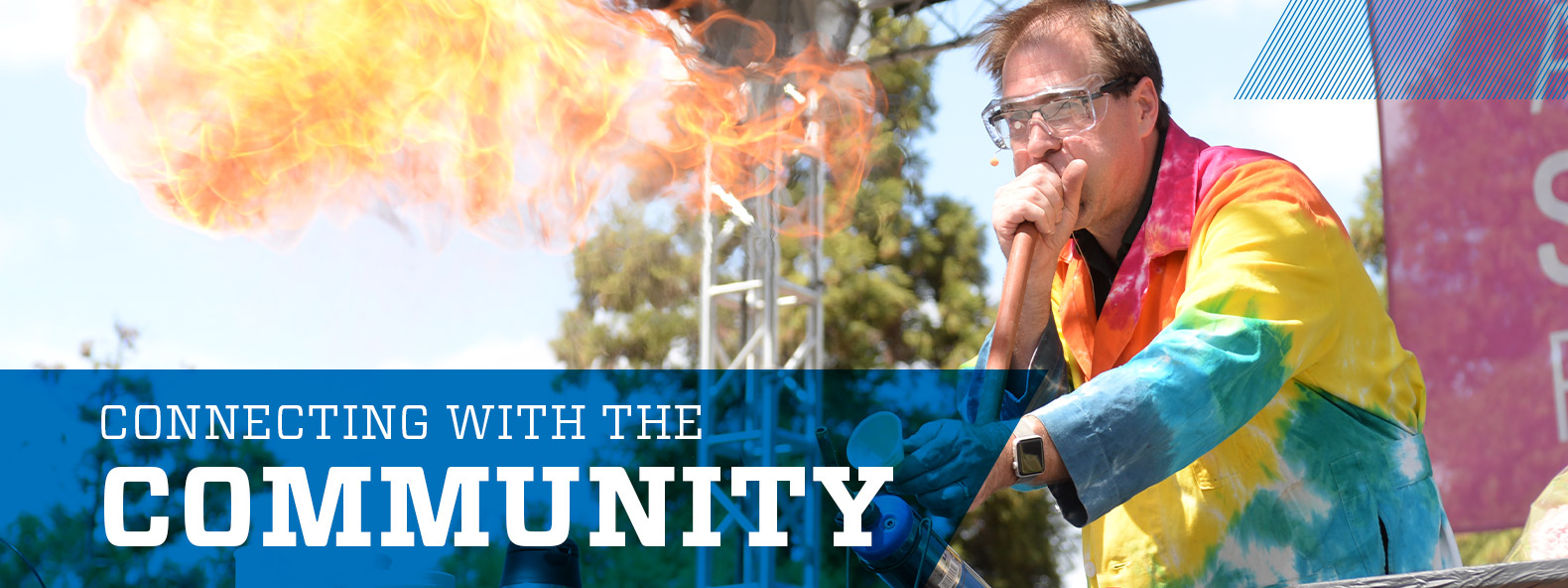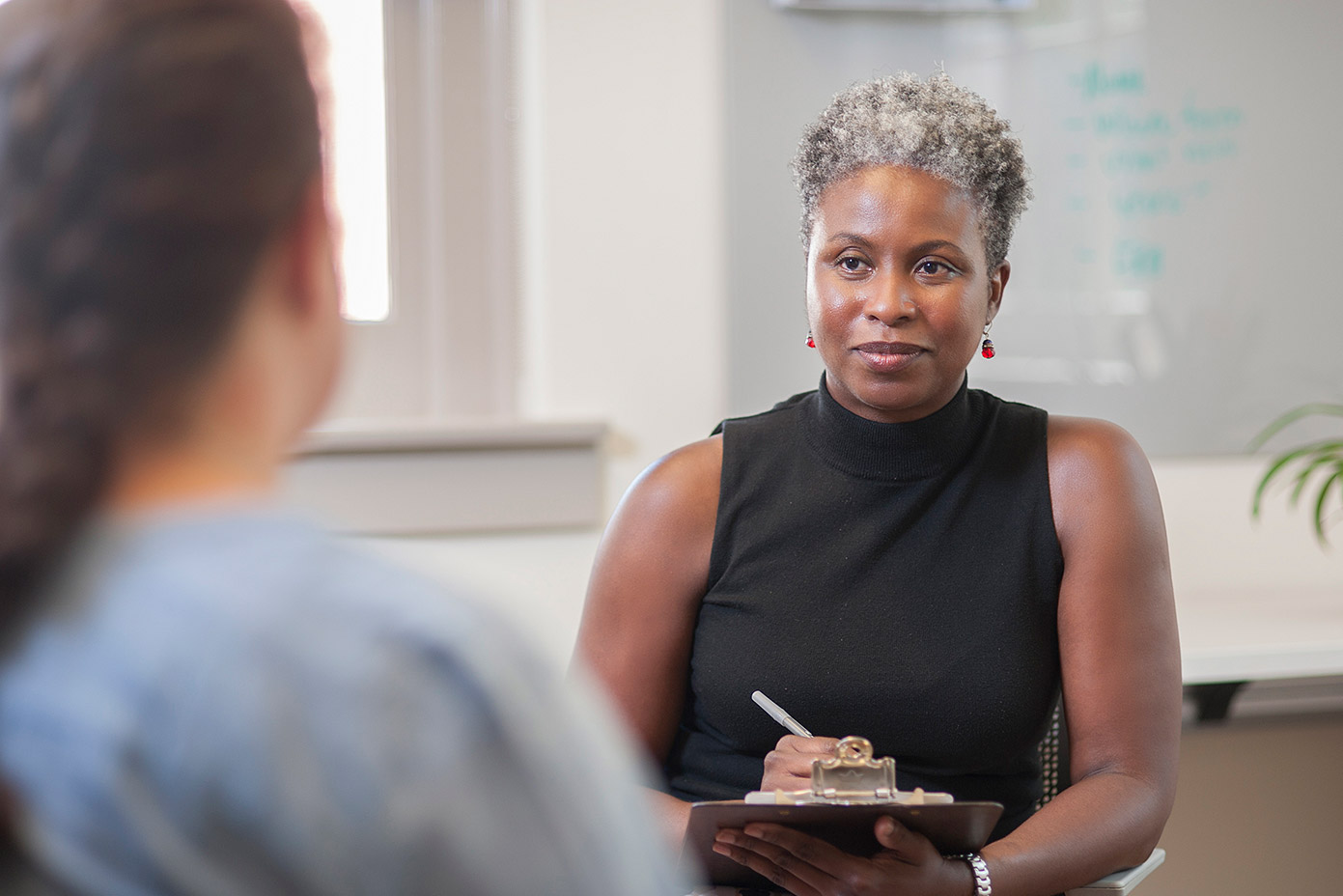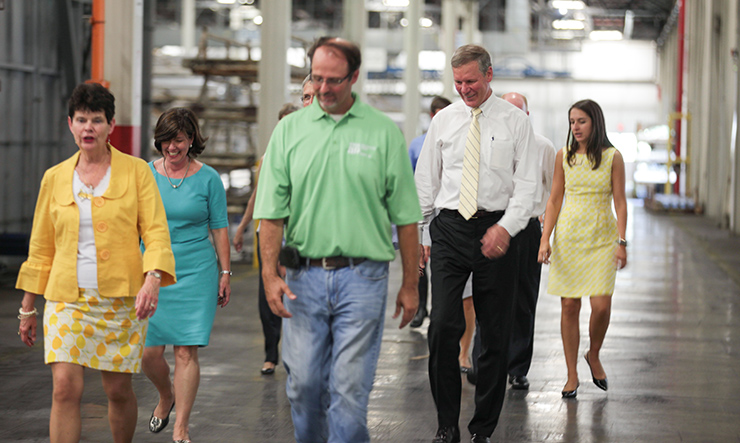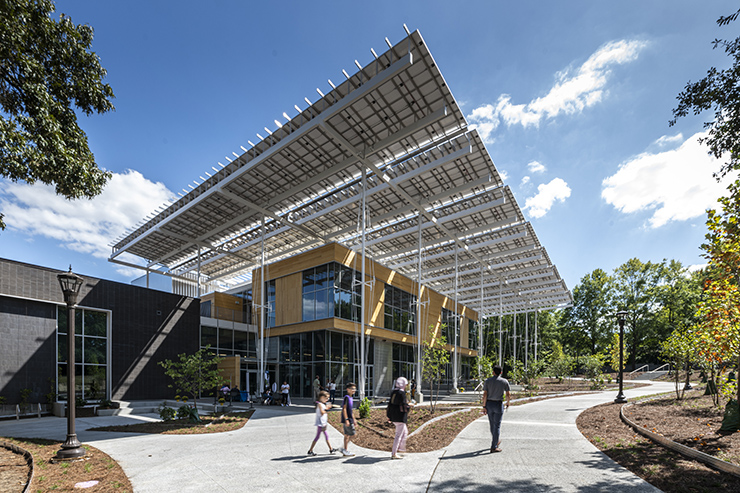
Annual Report 2019: Connecting with the Community
Community engagement remains a top priority for the Institute in its efforts to be a thoroughly accessible and practical resource to stakeholders both on campus and beyond.
Atlanta Science Festival Attracts Over 55,000 in Its 6th Year
Atlanta Science Festival Attracts Over 55,000 in Its 6th Year
Continuing to grow in popularity, the Atlanta Science Festival — of which Georgia Tech is a founding partner — attracted more than 55,000 attendees to various locations throughout metro Atlanta for the 2019 rendition of this science carnival.
Over a two-week period, science lovers had the opportunity to attend more than 100 events. Many of them featured Georgia Tech faculty or groups, were hosted on campus, or had some other type of connection to Tech. The festival ended in Piedmont Park with the Exploration Expo, Atlanta’s biggest interactive family science event. Georgia Tech contributed $75,000 to help make the 2019 iteration of the festival possible.
‘Let’s Talk’ Program Introduces Informal Walk-In Consultations

‘Let’s Talk’ Program Introduces Informal Walk-In Consultations
In an effort to connect with students who might be unlikely to seek traditional mental health services on campus, Georgia Tech launched “Let’s Talk,” an outreach program designed to engage students by providing informal walk-in consultations with Georgia Tech Counseling Center counselors at various sites across campus. It differs from formal counseling in that there is no clinical paperwork to complete, no formal intake, and no scheduled appointments. Students are encouraged to drop by and talk about whatever is important to them, in the same way they might talk with a teaching assistant, residence hall director, or academic advisor.
The service is open to all Georgia Tech undergraduate and graduate students and is appropriate for those who may be unsure about formal counseling; have a specific problem and would like someone with whom to talk it through; have a concern about a friend and want some thoughts about what to do; or are not interested in ongoing counseling but would like the perspective of a counselor.
Petersons Log 7,500 Miles around State after 10 Years

Petersons Log 7,500 Miles around State after 10 Years
What began as a way for then-President G.P. “Bud” Peterson and first lady Val Peterson to learn more about Georgia turned into an event that mobilized several arms of campus every year to execute a four-day road trip.
“When Val and I first arrived at Georgia Tech in 2009, we looked forward to it as a way to get to know our new state so that we could better serve its needs on behalf of Georgia Tech,” said Peterson.
Since that first time, the Petersons enjoyed nine subsequent annual Georgia tours that helped acquaint them with the state’s citizens, community leaders, current and prospective students, and entrepreneurs and business leaders whose companies Georgia Tech had helped create or improve.
From meeting with valedictorians and salutatorians benefiting from the Georgia Tech Scholars Program to mingling with state officials, visiting manufacturing and other business operations, and networking with Tech alumni in the farthest reaches of the state, the Petersons have connected with Georgia on multiple levels through communities in every corner. All told, they traveled nearly 7,500 miles through virtually each one of Georgia’s 159 counties, and held 250 events or meetings in more than 100 cities throughout the state. In 2018 alone, they traversed nearly 650 miles through 27 counties with 30 events or meetings in 12 cities.
CEISMC Partnerships Support K-12 Education
Georgia Tech’s Center for Education Integrating Science, Mathematics, and Computing (CEISMC) has collaborated with Code.org, a nonprofit founded in 2013 to expand access to computer science for K-12 students. Together, they will offer professional development sessions for K-12 teachers with little or no background in computer science so they can adequately prepare to offer computer science courses at the elementary, middle, and high school levels.
Through this partnership, CEISMC supports Georgia computer science teachers and trains facilitators of the Code.org curriculums. The training is meant to alleviate fears that teachers may have of teaching a subject they do not have much experience with.
Once enrolled in the program, teachers come to Tech for a five-day intensive summer workshop. After the event, the teachers receive additional long-term support through quarterly just-in-time follow-on training sessions.
Code.org has evolved and expanded in the last five years. It now has partners in all 50 states and Puerto Rico, and its curriculum is used in over 180 countries.
Besides Code.org, CEISMC’s current K-12 outreach efforts extend to Atlanta’s M.R. Hollis Innovation Academy. Through the partnership with Hollis Academy, CEISMC is strengthening the connection between Georgia Tech and its surrounding community and supporting the development and implementation of a high-quality STEM curriculum. Georgia Tech’s direct involvement in the Academy is guided by four main priorities: strengthening the instructional program, aligning systems and resources to school needs, preparing and developing knowledgeable staff focused on quality teaching, and building a positive and engaged school culture.
Living Building Comes Alive
Living Building Comes Alive
One of the most innovative and sustainable buildings in the Southeast opened its doors to the campus community in time for the Fall 2019 semester.
As a building pursuing Living Building Challenge 3.1 status, The Kendeda Building for Innovative Sustainable Design has as its main purpose going beyond doing less harm. The aim is to give back to the environment — as well as to the users and occupants of the building, including The Kendeda Building director, Office of Campus Sustainability, Global Change Program, and the anticipated thousands of students and visitors expected annually. From the very beginning, the human element of this unique high performance building has helped drive the planning and design decisions.
As Americans spend approximately 87% of their time indoors, how buildings are constructed and the materials used to build and maintain them can have a profound impact on the health and well-being of the occupants.
Access to natural elements, such as sunlight and clean air, matters when it comes to improving the human experience. Since the 1990s, researchers have been drawing correlations between access to natural light and increased test scores in the academic setting. Improving air quality (via natural and mechanical ventilation) is also associated with increases in occupant productivity — not to mention a decrease in sick building syndrome, the range of nonspecific acute illnesses or discomfort linked to time spent in a building.

(text and background only visible when logged in)
